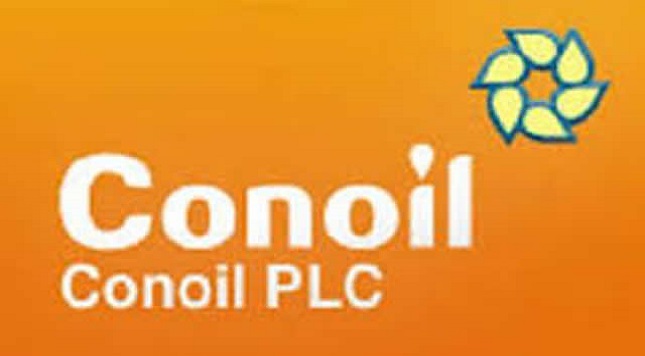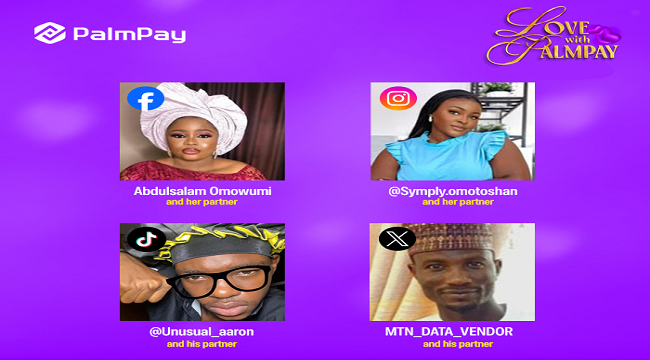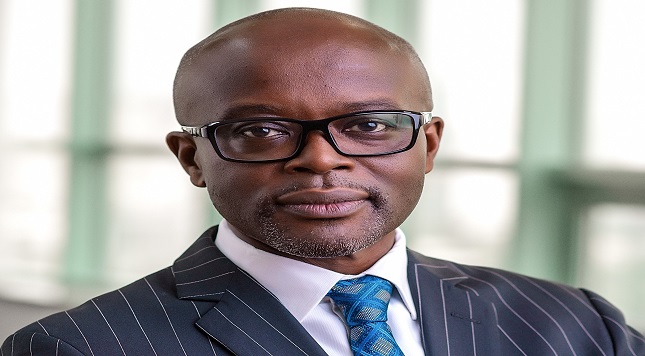General News
Data Driven 4G LTE Will Relish Video Streaming, Local Content- Venn

Mr. David Venn, chief executive officer of Spectranet said that online video streaming will become better with the launch of fourth generation technologies (4G LTE) in Nigeria.
Venn who was speaking on the recent announcement by Spectranet to deploy first server for Netflix in West Africa, said that lovers of movies and TV series now have better deals, adding that the gesture will push the pay-tv stations to rethink on their strategies.
Low Cost Online (Video) Contents
He said, “To have a better experience on Netflix you need to have fast internet connection. That is why the Netflix customers are going to have better experience because there will be no buffing; with $10 a month you get the movies in a high definition (HD) and you can watch on two screens. It means you could be watching television at home and someone else could be watching via the smartphone, different content on the same account. In other words, with $10 a month you have all the contents available to you; watching unlimited times. The contents are mainly movies and TV series. Netflix is not even resting on its oars in making available new contents. They spend billions of dollars in producing their own contents.
“Therefore, lovers of movies and TV series now have better deal; you could be watching series from office, continue in your car while heading home after work and you can get home, turn the TV on and resume from the spot you pursed. Now, I am in Nigeria and my son is in UK, we watch Neflix on the same account”.
Venn gave insight on the choice of Spectranet by Netflix thus, “Netflix was looking for a broadband (internet service) provider with high speed an offers quality service. So, they selected Spectranet. We now have a dedicated Netflix server. That contains the whole content (library) of Netflix. Every night it is updated with the California server. So, as new episodes are coming out (fro series) they are updated simultaneously.
“It happens at night when the internet is not too busy, because it requires a huge data to download HD videos. They gave us the server, managed remotely. What that means is that, normally, if you were using Netflix in Nigeria that was downloaded from the UK and US. So, you were internationally streaming videos from their server. But now, with the server in Lagos, it is like local content. On our network you go straight to the server and streaming will be much better and faster for our customers.
Spectranet’s Benefit
“The key thing for us is not only one of the first in Africa to get Netflix server, we are the only one in West Africa. No network provider in West Africa, of any sort has it, including Nigeria. In other worlds, their customers still have to stream movies and TV series from either UK or U.S., for us it is local. They chose Spectranet because of our quality network. They love the fact our customer watch their movies a lot. They have the statistics”.
Local Content
He added that the partnership will also boost local contents such as IrokoTv and Nollywood contents.
“On local content, you already got IrokoTv which is doing quite well. Last year we encouraged our customers to watch IrokoTv; they are a lot of local content (Nollywood) on the platform. That too is helpful. For the fact I am on Netflix, I can as well have IrokoTv account. It gives you choice for foreign and local contents. IrokoTv app can be launched on Netflix, because there are a lot of Contents (apps) on it. For instance, I can watch SkyNews live. I have DStv at home, but I have no time for it, because SkyNews is there and all the Tv series I need are on Netflix. So, I can download IrokoTv app on Netflix and it becomes part of the menu. I am not using a browser; it looks more like a TV station. For instance Apple Box (containing Apple TV), you do not subscriber to it. It is more of plug and play.
“Now, if you acquire Apple Box, it even accords you further varieties. When you view, it synchronizes your Netflix account. So, you do not need to buy the movie the second time. And Netflix is a competitor to Apple Tv. Apple Tv is a different model where you have to pay for everything you watch. If you move to news; SkyNews for instance, I can clique on any piece and watch or view live broadcast. They stream on my internet service.
4G LTE Is Data Driven…Costs of Streaming HD Videos
“The truth is that data is getting cheaper than it was two years ago. We also introduced unlimited night time data usage for our customers. From 1:00am to 7:00am, it is totally free. Thus, you can watch Netflix at night without any cost. Netflix also has its package; if you are a (Netflix) customer, you do not come to us, rather you go to them. They have a first month free package; no obligations as you can choose to sigh off/cancel anytime. So, the $10 monthly subscription is free for the first time you come on board.
“During the day and early evening you will pay for the data (Spectranet). I maintain that data prices are coming down. 80% of our customers are on 20GB plan (which is now 25GB for the same price with free unlimited night browsing). Neflix is an OTT service and we love it. You can switch to non-HD; that is standard view experience, so as to save your data. Secondly, you do not pay per Netflix movie, but monthly, which is cheaper than pay Tvs we have around here.
Plans for Sustainability (Partnership to Drive Traffic)
Spectranet remains the most reliable internet service provider in the country. Our up time is higher than any operator. The last thing you would want to happen is for the internet to be off, especially when you have movie to watch. We have been doing this for over 5 years and the first to launch 4G LTE. With the experience we have gotten we know how to manage 4G LTE network.
“It is very different from managing voice network. We have the backups- generators, batteries, all to make sure network is up. Even if they fail, we have a third party towers to connect instantaneously. We have our data connectivity to our core data centre located in Lagos and connected to major submarine cables like MainOne and three others. Even if the submarine cables are down, you are not losing any data, because the content is local. The only thing that will affect the process is the synchronization at night, because new episodes need to be downloaded. So, if you are using another internet service provider in Nigeria, you cannot access the server”.
General News
Conoil Bonanza Winners Emerge

Conoil Plc is spreading joy this Valentine season as the first group of winners in its Valentine Bonanza promotion have been announced and rewarded. Launched on February 14, the campaign continues to delight customers at participating retail outlets.

The initial raffle draw, conducted on February 21, saw fortunate customers receive ₦10,000 worth of free petrol each. The draw was carried out publicly, with media representatives present to ensure full transparency. With the promotion still ongoing, more customers have the opportunity to join in and potentially be among the next winners.
A Conoil Management spokesperson explained that the initiative is a way to show appreciation to loyal customers for their ongoing support. “Our customers have responded impressively to the bonanza, with strong participation recorded across our stations,” the spokesperson said.
The second and final phase of the promotion is now in motion. Customers who purchase at least 10 litres of petrol at any participating Conoil station remain eligible to win in the grand finale raffle.
The grand finale is set for February 28 at 12 noon. Motorists in Lagos and Ogun states are encouraged to visit Conoil outlets to collect their tickets and take part in the exciting conclusion of this Valentine celebration.
General News
PalmPay Couples Show How Love Is Funded Digitally

PalmPay users took to the #LoveWithPalmPay campaign to show how experiences are powered through seamless banking.

It’s the month of love and social media has been filled with couples showing affection with gifts. As digital payments become embedded in everyday life, the way relationships are planned, funded, and experienced is evolving.
Recent insights from SBM Intelligence 2025 ‘Love in the Air’ report show that despite economic pressures, most Nigerians still set aside dedicated budgets for Valentine’s Day, with the largest percentage planning to spend between N51,000 and N100,000, while less than 5% are willing to spend above N500,000.
This growing intentionality highlights the need for platforms that help people manage their money more effectively, offering features like free transfers and tools that make it easier to send, track, and preserve funds while still showing up for meaningful moments.
Through the #LoveWithPalmPay campaign, PalmPay set out to show how the platform is enabling users to plan, pay, and celebrate meaningful moments with greater ease.
During the Valentine’s season, PalmPay invited couples across Nigeria to share their stories through the #LoveWithPalmPay campaign, celebrating how digital banking supports their individual expressions of love.
The campaign saw strong participation, with many PalmPay couples submitting entries that showcased how they use the app to plan surprises, pay for outings, and stay connected through everyday transactions.
From these entries, four couples were selected, each showcasing how PalmPay has enabled fast and reliable transactions in key moments.
One video from @simply.omotoshan, one of the selected couples, captures the role of seamless payments in making their spontaneous moments possible.
She said in her entry video: “Our cutest money moment with PalmPay was when we planned our Valentine’s picnic and realized we had forgotten half of the things we needed; literally, half of everything. We rushed to the mall to get cakes, food, decorations, and all the essentials. When it was time to pay, we used PalmPay.
“The transaction was smooth, fast, and stress-free. In no time, we were done setting up our Valentine-themed picnic with everything perfectly ready. Honestly, all our experiences with PalmPay have been easy and satisfying, but this one is definitely our cutest money moment. Thank you, PalmPay.”
A testimonial from the fourth selected couple, Mohammed and his wife, reflects his excitement: “Hello PalmPay, thank you so much for selecting us as one of the winners of the #LoveWithPalmPay campaign. We truly appreciate this. My wife and I are very grateful. Thank you, PalmPay, for the love and support. We’re so happy and thankful for the N100,000 reward. We love you, PalmPay, and long live PalmPay. Thank you so much.”
Beyond the feel-good stories, the campaign reflects a broader shift: fintech is no longer just about transactions, it’s about enabling experiences. Reliable payments, fast transactions, and accessible financial tools reduce the friction that can disrupt important moments, allowing users to focus on connection rather than logistics.
From paying for dinner to managing other expenses, PalmPay continues to demonstrate how digital financial services support modern relationships, proving that in today’s economy, love is not only felt, it’s funded digitally.
General News
KPMG Strengthens Africa Leadership to Support Long‑term Growth Across the Continent

KPMG has appointed Tola Adeyemi as Chief Executive Officer for KPMG one Africa, alongside the addition of Professor Olayinka David‑West and Dr. George Njenga as independent members of the Africa Governance Council (AGC).

Effective from March 2026, the appointments reinforce the firm’s leadership expertise, underscore a long‑term commitment to Africa and highlight confidence in the continent’s growth potential.
“Africa is one of the most dynamic and promising regions in the global economy, and KPMG is committed to playing a meaningful role in its growth story,” said Tola Adeyemi, incoming CEO for KPMG One Africa.
He continued: “It is a privilege to step into this role at such a pivotal moment for both KPMG and the continent. I look forward to building on our strong, connected and high‑performing base to deepen collaboration and deliver consistent quality and impact across our markets.”
KPMG is recognised globally for its commitment to quality, integrity and professional excellence, supported by a strong global network of member firms. Trust remains the foundation of the audit and accounting profession, with high standards of governance, ethics and audit quality increasingly demanded across Africa’s public and private sectors.
KPMG One Africa’s approach brings the continent closer together with strong leadership to strengthen cross-border collaboration and offer shared expertise and consistency which is business‑critical to help clients navigate complex risks and unlock sustainable growth opportunities.
Commenting on the appointment, Professor Ben Marx, Chairman of the Africa Governance Council, said: “Tola Adeyemi is exceptionally well positioned to lead KPMG One Africa. In addition to his global perspective as a member of the KPMG Global Council, he brings significant influence and credibility as a respected business leader across the continent.”
The appointments of Professor David‑West and Dr Njenga to the Africa Governance Council, which provides board level governance, further strengthens independent oversight, bringing strong academic credentials alongside deep strategic and business expertise.
“These appointments reinforce KPMG’s commitment to strong governance, accountability and leadership depth,” Marx added. “They complement our established African leadership team, in‑country managing partners and regional senior partners, further enhancing our client‑centric approach across Africa.”

 E-Business2 days ago
E-Business2 days agoAfDB, UNDP Launch $10Bn AI Initiative for Africa

 Telecom3 days ago
Telecom3 days agoGSMA Launches Innovation Fund to Accelerate Green Transition Through Mobile Technology

 Telecom2 days ago
Telecom2 days agoGrey Expands Cross-Border Banking with USD Accounts, USDC Support

 E-Financial3 days ago
E-Financial3 days agoRetiree Slams N50m Suit against over Alleged Privacy Breach, Unauthorized Accounts

 News2 days ago
News2 days agoLotus Bank, REA Seal N100Bn Deal to Power Rural Nigeria

 News2 days ago
News2 days agoObasanjo, Vanguard’s Amuka Lead Prayers for Zinox Chief Leo Stan Ekeh @70

 News2 days ago
News2 days agoDG NITDA Reaffirms FG Commitment to Responsible, Inclusive AI

 E-Financial2 days ago
E-Financial2 days agoCBN Cuts MPR by 50bps to 26.50% as Inflation Eases for 11th Month















